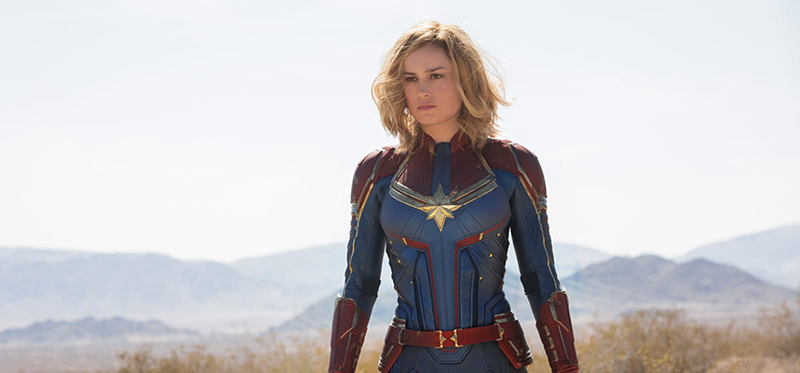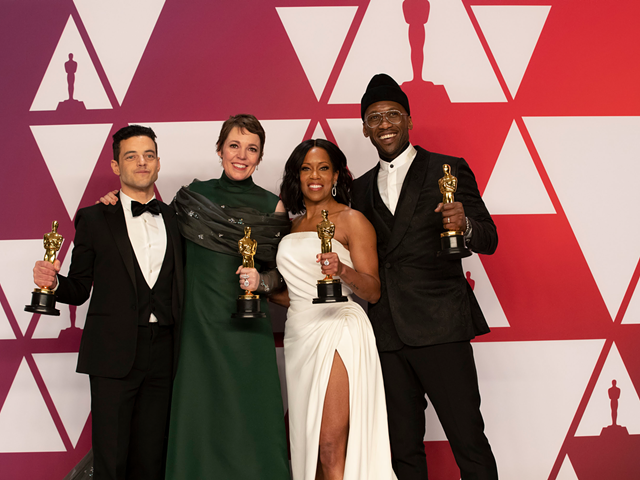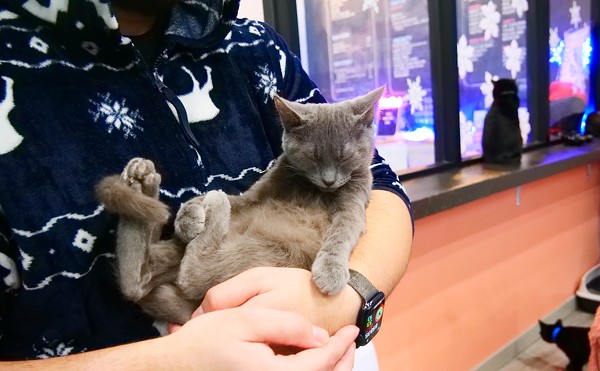So much has already been celebrated — and smeared — about Captain Marvel's hero: Carol Danvers, also known as Vers.
But, for me, I was left with the same thought I had upon seeing DC’s Wonder Woman in 2017: I wish I was able to see this when I was a kid. And both films — I won’t pit women against one another — deliver multi-dimensional, badass characters who stand on their own in a field vastly dominated by men; and in both, girls can see themselves reflected in the hero image. Gathering from its wild success — it raked in $455 million worldwide its opening weekend, making it the biggest box office hit this year — I’d guess Captain Marvel did its job.
Yes: It's the Marvel Cinematic Universe's first female-fronted hero origin story, but it shouldn't be news that the film has done so well; it's been shown time and time again that audiences respond to diverse representation.
Directed by Anna Boden and Ryan Fleck, it’s a genuinely funny, action-packed movie that draws comparisons to the hokey shenanigans of Guardians of the Galaxy. After we’re taken through the clunky, sometimes-confusing exposition, which I’ve come to expect from Marvel origin stories, we see Carol (Brie Larson) crash-land into a Blockbuster in Los Angeles in 1995 (R.I.P. You are missed, BB).
Rewind: Carol is a Kree soldier known as Vers on the frontlines of a galactic battle between her people and the Skrulls when she crashes to Earth. While there, memories resurface, which reveal her past life as an ambitious (and human!) Air Force pilot. But the links to her bygone reality don’t fully connect until the film’s climax. In those memories, she also sees Mar-Vell, played by Annette Bening, who serves as Carol’s boss/mentor. Bening’s role marks a diversion from the comics, where Mar-Vell is a man. That casting move deepens viewers’ understanding of Carol, whose development as a hero is directly linked to the other women in her life — her mentor, her best friend Maria (Lashana Lynch) and Maria’s daughter, who all serve as Carol’s makeshift family. The camaraderie between them feels essential to both the film’s ethos as well as the shaping of Carol’s persona, with or without the suit.
In between, she links up with a young Nick Fury (Samuel L. Jackson), who hasn’t yet encountered other super-people. (Sorry, gatekeeping fanboys: A woman is, in fact, the reason The Avengers exist.) At the start, they’re after the Skrulls, a shape-shifting alien race who have infiltrated Earth. Later, the Skrulls’ collective narrative is given more depth — they’re not the terrorists the Kree have painted them to be — and Carol’s previous loyalties break.
As is made clear with several obvious nods to its time — Carol’s Nirvana T-shirt and around-the-waist flannel, a soundtrack littered with hits like No Doubt’s “Just a Girl” and extras strolling around with yellow Walkmans — Carol crash-landed into the heart of the grunge era. There’s also a cat — ahem, flerken — named Goose, who is adorable. At least, if his gushing is any indication, Fury seems to think so.
Captain Marvel has its faults: The coloring is often overly gray and dull, like many of its counterparts. And the banter, at times, feels forced. As expected, it’s also formulaic; there’s a well-defined structure here that doesn’t veer too far off the course of standard superhero fare. As Marvel — and DC — churn out movie after movie, superhero fatigue at the box office is also very much real.
But honestly, audiences flock to superhero fare because they need a comforting escape. Captain Marvel delivers that.
And like many men who try to tell the women in their lives that they're less than, not ready or unfit to lead, the film's villain is fittingly mediocre. The stakes might not feel as high here, but maybe they don't need to be.
Larson’s performance in Captain Marvel is energetic and infused with wry humor. For six years, Carol has been trained to suppress her powers (and emotions); as the film progresses, we see her break down personal and emotional barriers. Larson does this gently, employing restraint, resilience and softness when needed. Carol is a force to be reckoned with — just like the film’s tagline: Higher, further, faster.
Grade: B- (In theaters)







